- 1 (860) 767-0603
- Mon - Fri: 8:00 - 5:00
- 147 Dennison Road Essex, CT 06426
Retaining Walls: What You Need to Know?
Retaining Walls
Transform Your Landscape with Engineered Septic Sewer's Retaining Wall Services
DO YOU NEED EXCAVATION WORK? GET A QUOTE TODAY
Are you looking to enhance the beauty, functionality, and stability of your landscape?
Engineered Septic Sewer is here to make it happen with our exceptional Retaining Wall Services. Whether you’re dealing with sloped terrain, erosion issues, or simply want to add an eye-catching architectural element to your outdoor space, our team of experts has the knowledge and expertise to design and construct stunning retaining walls that meet your unique needs.
Types Of Retaining Walls We Specialize In
- Gravity Retaining Walls: Gravity retaining walls rely on their weight and mass to hold back the soil. They are typically made of concrete or stone and are ideal for low to moderate height applications.
- Reinforced Soil Retaining Walls: Reinforced soil retaining walls combine the strength of compacted soil with reinforcement materials, such as geotextiles or geogrids. This type of retaining wall is versatile, cost-effective, and suitable for both small and large-scale projects.
- Cantilever Retaining Walls: Cantilever retaining walls are engineered structures that use a horizontal arm, known as a cantilever, to support the soil behind it. These walls are designed with a thicker base and a tapered profile to distribute the pressure exerted by the soil.
- Sheet Pile Retaining Walls: Sheet pile retaining walls are constructed using interlocking steel, vinyl, or timber sheet piles that are driven vertically into the ground. They are commonly used in areas with limited space and where deep excavation is required.
- Anchored Retaining Walls: Anchored retaining walls utilize a combination of vertical retaining elements and anchors or cables that extend into the soil behind the wall. The anchors provide additional stability and prevent soil movement.
- Segmental Retaining Walls: Segmental retaining walls consist of precast concrete blocks or interlocking units that are stacked to create a wall structure. These walls offer versatility in design and are available in a wide range of colors, textures, and sizes.
- Natural Stone Retaining Walls: Natural stone retaining walls provide a timeless and organic look to your landscape. They are constructed using natural stone materials, such as granite, limestone, or sandstone, and can be dry-stacked or mortared.
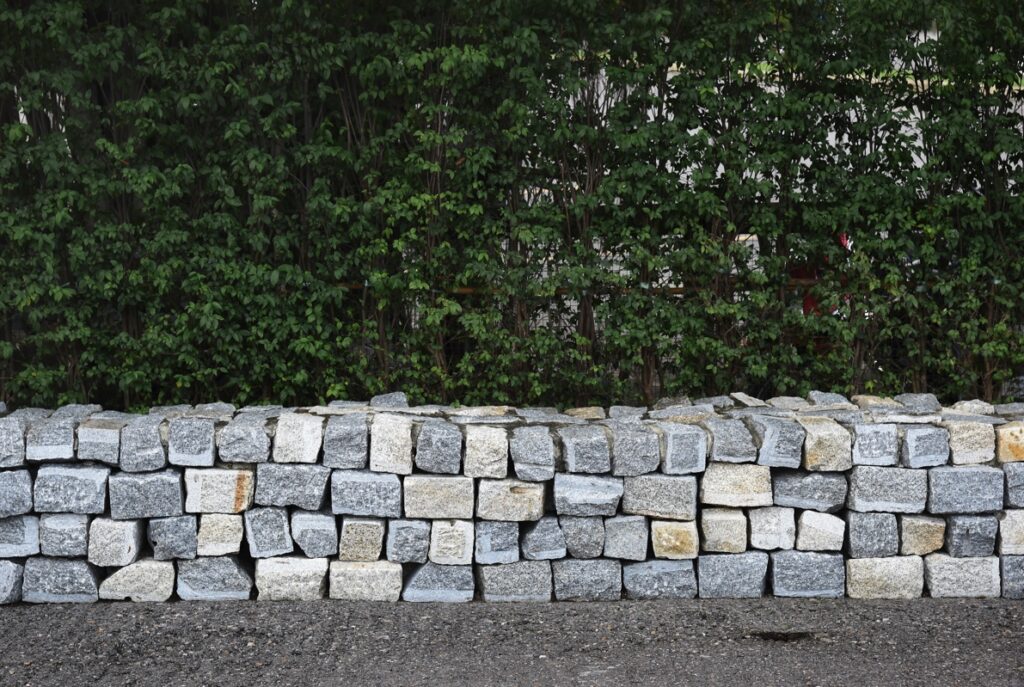
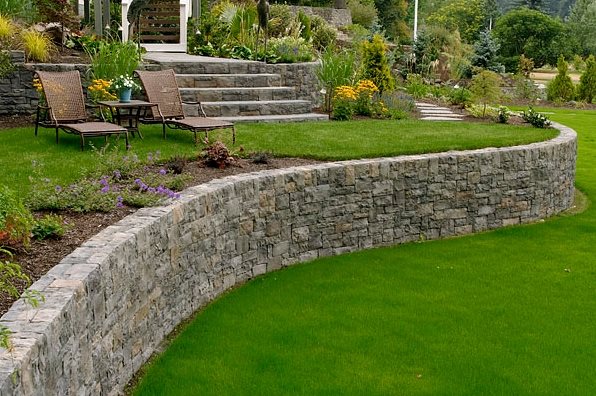
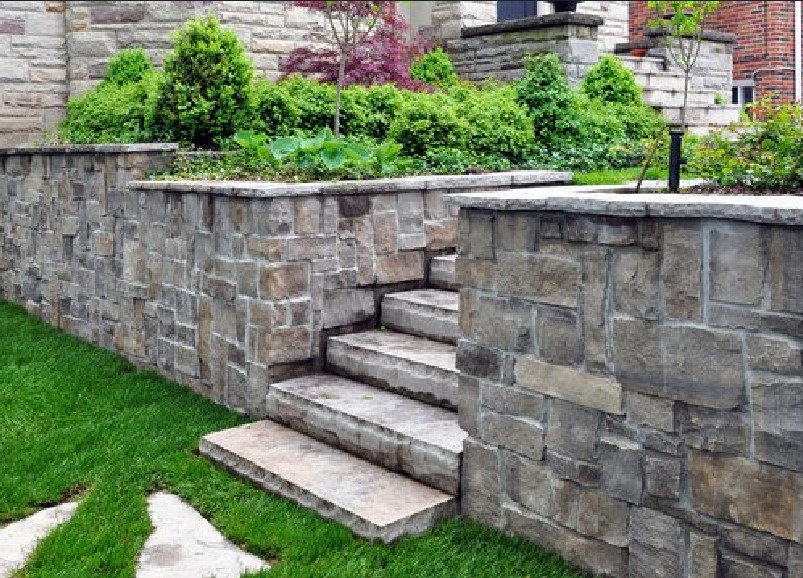
Why You Should Consider Incorporating A Retaining Wall Into Your Outdoor Design
Erosion Control and Stability
Maximize Your Space
Aesthetically Pleasing Designs
Privacy and Peace
Protect Your Property
Efficient Water Management
Increased Property Value
Versatile Solutions for Your Needs
Erosion Control and Stability
Sloping terrain and soil erosion can wreak havoc on your landscape. Our expertly designed and constructed retaining walls provide the necessary stability to prevent soil erosion.
Maximize Your Space
Do you have uneven or sloped land that limits your outdoor activities? Our retaining walls create level areas, effectively maximizing your usable space. Whether you envision terraced gardens, seating areas, or functional spaces for outdoor entertaining, our retaining walls can transform your landscape into an inviting and versatile oasis.
Aesthetically Pleasing Designs
Our retaining walls are not just functional; they also add beauty and charm to your outdoor space. With a wide variety of materials, colors, and textures available, we can create a retaining wall that seamlessly blends with your property’s architectural style.
Privacy and Peace
Enjoy the privacy you deserve with our thoughtfully designed retaining walls. By strategically positioning the walls, we can create secluded areas and buffer zones that shield your outdoor space from prying eyes and unwanted noise.
Protect Your Property
Retaining walls not only enhance the beauty of your landscape but also provide essential structural support. They stabilize slopes and prevent soil movement, safeguarding your property from potential damage caused by shifting ground.
Efficient Water Management
Proper water management is crucial for a healthy and thriving landscape. Our retaining walls are designed to manage water flow effectively. By redirecting runoff and controlling drainage, they help prevent water damage and flooding.
Increased Property Value
Investing in retaining walls is an investment in your property’s value. Well-designed and professionally constructed retaining walls significantly enhance curb appeal, creating attractive landscaping features that catch the eye of potential buyers.
Versatile Solutions for Your Needs
We understand that every property is unique, and your retaining wall should reflect your specific requirements. Our skilled team works closely with you to design and construct retaining walls that align with your vision.
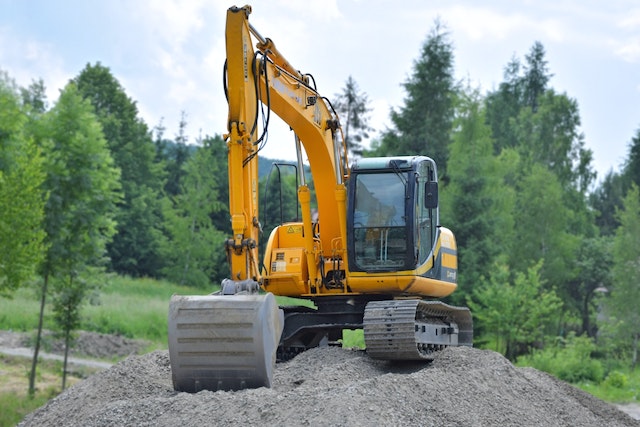
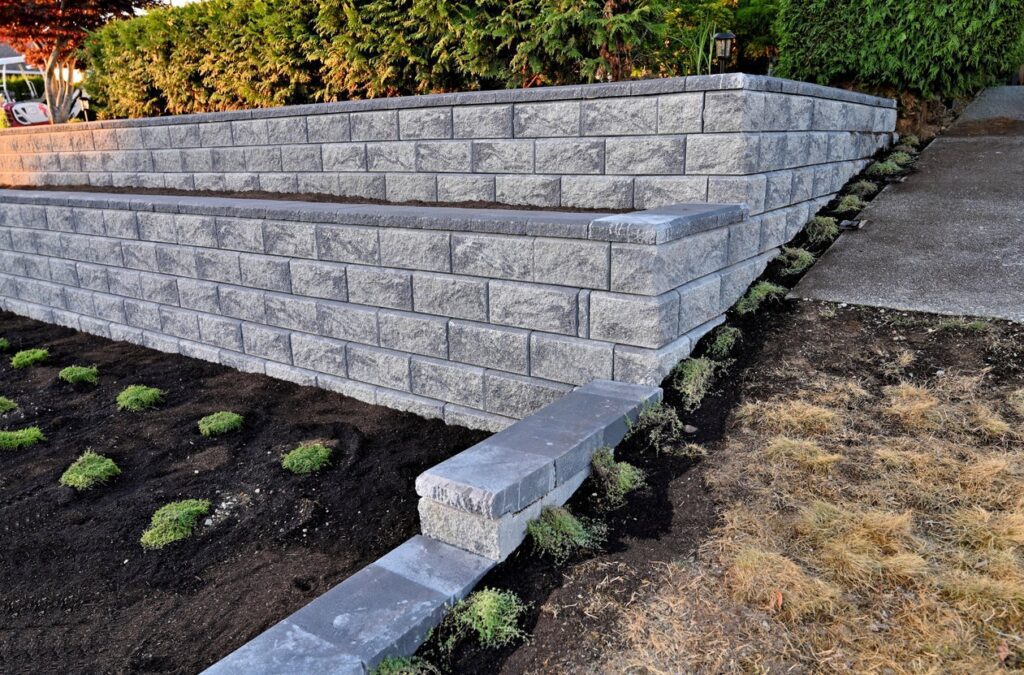
Benefits of Retaining Walls
Retaining walls offer several benefits, including:
Improved Aesthetics: Retaining walls can add a decorative touch to landscaping projects, and they can be designed to complement the surrounding environment.
Prevent Soil Erosion: Retaining walls help prevent soil erosion by holding back the soil and preventing it from washing away during heavy rains.
Create Level Areas: Retaining walls can create level areas on sloped or uneven terrain, allowing for more usable space in landscaping or construction projects.
Provide Stability: Retaining walls provide stability to steep slopes, preventing landslides and other types of soil movement.
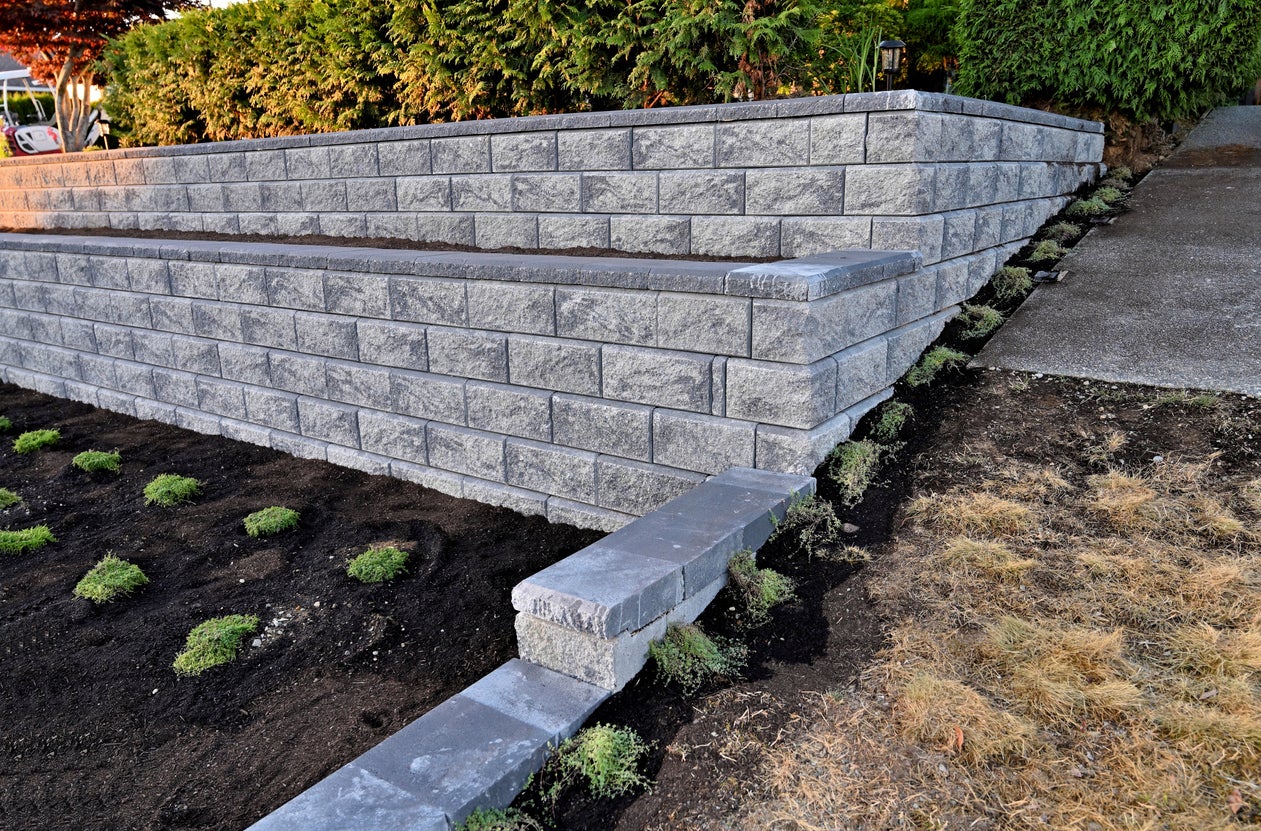
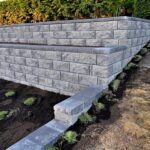


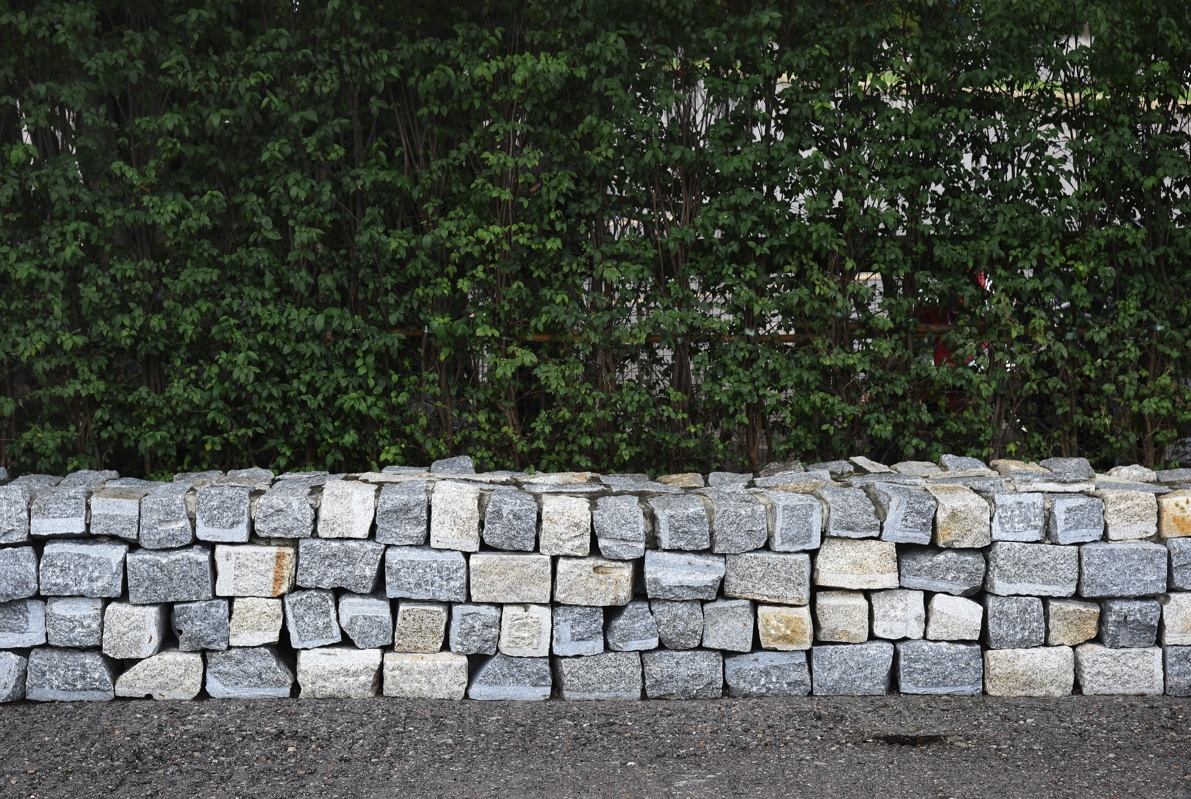

Installation Process
The installation process for retaining walls depends on the type of wall being installed. Generally, the process includes the following steps:
- Site Preparation: The area where the retaining wall will be installed is cleared of any debris, and the soil is leveled.
- Excavation: The soil is excavated to create a trench where the retaining wall will be installed.
- Base Preparation: A layer of gravel or crushed stone is laid in the trench to provide a stable base for the retaining wall.
- Wall Construction: The retaining wall is constructed according to the design and materials chosen, with proper drainage and reinforcement as needed.
- Backfilling: The trench behind the retaining wall is filled with soil and compacted to provide additional support to the wall.
Retaining walls are essential structures in landscaping and construction, providing stability to sloped or uneven terrain, preventing soil erosion, and creating level areas. With various types and materials available, retaining walls can be designed to complement any environment and meet any project’s needs. Proper installation and maintenance are key to ensuring the retaining wall’s longevity and effectiveness in supporting the soil and preventing erosion.
Other Sitework Service List

Excavation
Excavation is an essential part of any sitework service. It involves the removal of soil, rock, and other materials... read more

Grading
Grading is an important part of any sitework service. It involves leveling the ground to prepare it for construction. Grading is a co... read more
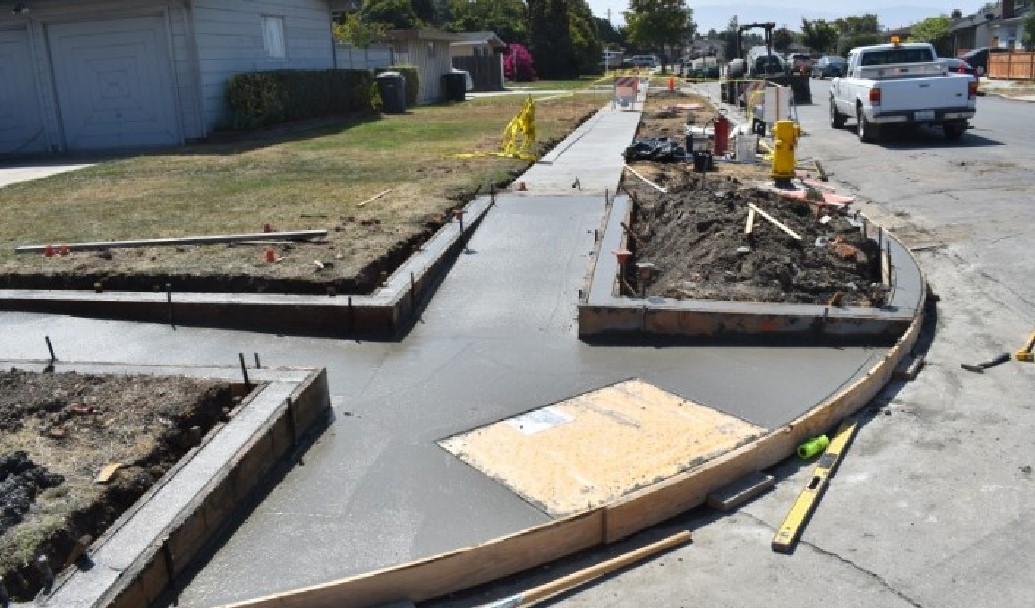
Drives and Sidewalks
Driveways and sidewalks are important parts of any property because they provide safe and easy paths for people who are walking or driving on them....read more

System Design & Installation
System design and installation are critical components of any project... read more
Frequently Asked Questions About Siteword Services
Yes, we are. Our HIC is #0621579. Our Septic License is #005821. What’s more, we also hold a Physical Engineer’s License: P.E. 23501. We will also make certain all appropriate permits are secured with the city/county prior to beginning your project.
Yes, but we must look at your clearing project in order to give you an accurate price. All lots are different, depending on what you are clearing and how big the trees are. Prices always change from one to the next.
While we are not a “landscaping company”, Engineered Septic & Sewer does do some landscaping work. We will build a variety of stone, concrete, wood or modular retaining walls and stair systems, we will spread loam, stone, wood chips or a number of other ground covers and we will provide site clearing services including stump removal.
Yes, we perform all types of site work including sitework for new residential construction. We specialize in almost every aspect of site construction except building the house. When you are building a new home it can be a nightmare to use multiple contractors for the different phases of your site preparation. If you use Engineered Septic & Sewer, you will have the luxury of communicating with one company for every phase of your site preparation.
Yes, we haul all types of material including rip rap / boulders.
Ten years as Engineered Sewer & Septic, 20 years prior to that in other companies including the “family business”, Sullivan Paving.
In a typical residential construction project, the sitework contractor shows up after the surveying crew determines the house and lot boundaries. The contractor removes the soil to the depth required for the new foundation and ensures that the soil is firm through compaction tests and compaction with equipment, if necessary. The dig requirements are precise, so the excavation contractor must be able to use a level and transit to match the grade posted by the surveying crew. After the foundation contractor pours the footers and stem wall, the excavation contractor backfills around the new foundation.
In general, we do any and every type of sitework, includes grading, excavation, construction and installation of septic tanks, filtration systems, and utility connections. Other types of sitework we provide include the following:
- Preparation of the structure’s foundation through excavation or land clearing
- Rough or initial grading
- Final grading
- Landscaping
- Addition of walkways
- Preparation and approval of permits and fees
- Septic and sewer systems
Absolutely. We will gladly do your excavation work for a variety of residential and commercial construction projects.
In general, sitework is any earthwork done on a lot associated with a building either under construction or undergoing renovations after construction. Types of work typically associated with sitework include:
- Lot Clearing
- Foundation Preparation
- Rough Grading
- Final Grading
- Landscaping
- Driveways
- Walkways
- Septic or Sewer
- Well or Water
Another component of sitework is securing any permits or communicating fees associated with the project. At Engineered Sewer & Septic, we do all the aforementioned sitework with the exception of paving and concrete work. We can recommend quality craftsmen if your project entails such work.
If your question isn’t asked and answered here, please contact us. Who knows – maybe your question will be added to our FAQ!

